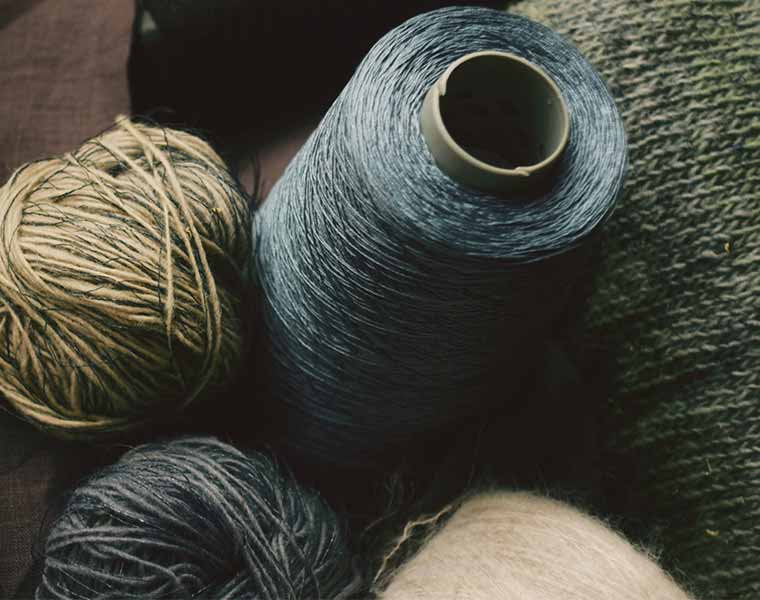A few weeks ago, we were catching up with a customer and they raised the interesting topic of vegan fabric and furniture. They asked if it was something we could do and right there and then, the tip of the iceberg presented itself.
Eco-conscious fabric is a hot topic in the fashion industry, especially for brands in the realms of fast fashion which is having a huge detrimental impact on the environment. However, as we move into the final quarter of 2019 and look toward 2020, we’re predicting conscious fabrics are going to become equally prolific in the world of interior design.
As the commercial design and architectural industries continue to become more eco-conscious, these types of requests are going to become more commonplace. So, with that in mind, we thought we’d venture deeper into the depths of sustainable product design to explore where the future of fabric is headed.

The overarching themes within the industry which shape a global emphasis on becoming more eco-sensitive, sustainable and accountable for our actions are:
- Lowering harmful emissions through things like manufacture and transport
- Reducing energy consumption wherever possible
- Limiting (or even eliminating) plastic – particularly single-use plastic
- Preserving animal life
- Reducing the amount of waste going into landfill
- Extending the lifespan of products and materials through recycling and reuse
- Using more natural materials over manmade or synthetic
Naturally then, once-popular materials like Perspex, synthetic cotton, suede, fur, leather, wool and plastic compounds are losing their shine and being specified less than they have in previous years.
We speak a lot about improving the health and wellbeing of our workforce – now it’s time to nurture the planet we live on and our natural environment too.

The eco-friendly fabrics you should be considering
So, where should the heads of architects and designers be turning?
Organic furniture fabrics
These are fabrics which have been made using fibres from plants (which means they also double up as a great way to introduce some subtle biophilic elements into an interior design scheme!) Organic fabrics are all durable alternatives to manmade materials and many of them are biodegradable and non-allergenic.
Examples of organic fabric:
- Raw/organic cotton
- Linen
- Hemp
- Jute
- Muslin
- Bamboo
- Calico
- Ramie
Vegan furniture fabrics
Vegan fabrics aren’t a specific category of fabric – it basically just constitutes any fabric which has been made without the skin, hair or feathers of any living being. As we touched on earlier, this clearly excludes things like leather, suede, fur and wool.
Taking this into account, that does technically mean that synthetic fabrics like polyester, acrylic and nylon are ‘vegan’. However, when catering for a client who requests vegan materials as part of a project, it’s safe to assume that natural, organic fabrics are going to be the brief.
Remember:
Eco-friendly, conscious materials do, of course, also extend to things like concrete, brick, cork and natural wood when considering flooring, hard surfaces, structural elements and wall coverings.
Recycled textiles
One of the most obvious means by which you can make your use of fabric more sustainable and more eco-conscious is by tapping into the endless possibilities of recycled materials.
For example:
- Swapping marble and ivory for repurposed plastics to create terrazzo effects
- Running Assess & Reuse audits to establish which products can be reused or repurposed rather than disposed of or replaced
- Opting for products which have been made using high percentages of recycled materials
- Upcycling – giving materials and fabrics a new lease of life rather than binning them
The Vepa ‘Whale Table’
Remember the Whale Table we saw in the Nomique showroom at Clerkenwell Design Week earlier this year? There’s a picture of it below if you can’t remember it… That has been made using recycled plastic water bottles dredged up from the polluted canals in Amsterdam.

It’s not just the fabrics themselves either…
Basically, the general idea is to aim for:
- Minimal waste and/or use of chemicals, carbon and pesticides
- Animal-friendly practices and sustainable farming
- Fairtrade and ethical sourcing
- Products and materials with high quantities of recycled content
This doesn’t just mean when buying or sourcing fabrics themselves either…
Best practice means you should be looking further back in the supply chain to look out for more sustainable growth of raw materials and more conscious ways of treating and colouring fabrics too.


